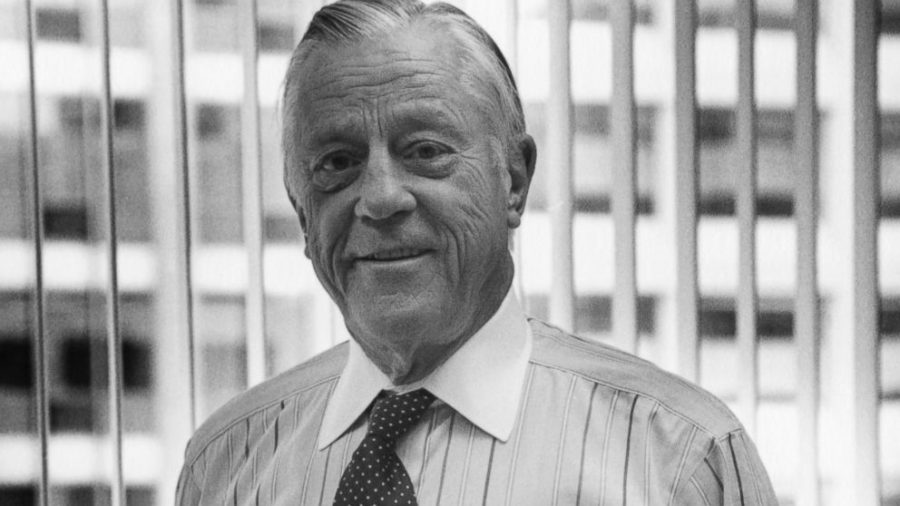OP/ED: Ben Bradlee’s Death and What It Means For Future Journalists
On Oct. 21, legendary Washington Post executive editor Ben Bradlee passed away at the age of 93, after suffering from Alzhemier’s disease and dementia for several years.
Bradlee changed the way Americans thought about journalism, leading the Washington Post through the era of the Pentagon Papers and the Watergate scandal, making it the most respected newspaper in the country.
He made it acceptable to lock horns with the government on matters that in previous decades may have gone unchallenged.
“Ben Bradlee was the best American newspaper editor of his time and had the greatest impact on his newspaper of any modern editor,” said Donald E. Graham, publisher of The Washington Post and Bradlee’s boss.
In 1974, once Nixon resigned because of the Watergate scandal, everyone wanted to become an investigative journalist. An entire generation went into journalism because Bradlee printed Carl Bernstein and Bob Woodward’s story on Watergate, which influenced the book and movie about them, All the President’s Men.
In a way, journalists became rock stars. Many advised against the investigation, but Bradlee said he was “sticking with the boys.”
And a lot of you may be asking yourselves why you should even remotely care about Bradlee’s passing. Here’s why:
Investigative journalism is dying.
Many students pursuing a career in journalism or media studies want to do something in the entertainment field, and there’s nothing wrong with that, but what happened to the people who wanted to make the world better by writing hard-hitting stories? Where are the journalists that wanted to do a public service to the people by digging up information that they needed to know?
I’m all for entertainment news, but that’s not the reason I wanted to be a journalist. I want to be able to write stories that compel and inform people, and maybe even open their eyes to something other than what the Kardashians are up to now.
What happened to real, investigative journalism?
Journalists, or students who want to pursue a career in journalism get it all the time – print journalism is “dying.” Magazines are being filled with lists instead of feature articles, and newspapers just sit around in delis or random kiosk stands in New York City for display. According to the American Society of News Editors census, there are about 36,700 full-time daily newspaper journalists at nearly 1,400 newspapers in the United States. That’s a 1,300 person decrease from 38,000 in 2012.
Yes, it’s going to be difficult to become a journalist. But just because things are changing, doesn’t mean that journalism is dying. It’s only evolving, and the journalists of today are just going to have be able to adapt to all of the new digital technology without giving up the real values of print journalism and investigative reporting.
As we evolve, we can’t constantly keep writing and reporting about celebrity gossip.Websites like Buzzfeed and Vice do a great job of covering both serious and investigative pieces to entertainment and celebrity news. Digital journalism isn’t the death of “real news” or investigative journalism. It opens up a new world of possibilities to research and write a compelling story that reporters and journalists wouldn’t have been able to tell without technology.
There are 438 digital organizations that write and report local and investigative news, according to Pew Research Center. While those number continues to grow, the number of people reading and writing for print newspapers or magazines are declining.
So yes, maybe in a few years we’ll all have to resort to reading The New York Times or any other newspaper from our iPads and our Kindles because the term “print journalism” will just become another piece of history the future generation will eventually hear about. That doesn’t mean we have to give up writing or reporting the demanding, investigative stories.
This only means that these stories should be 10 times better. There’s more to news than just celebrity gossip and quizzes that tell you ‘Which Bridesmaid’s character are you?”
Rest in peace, Ben. I hope to be one of the few people to make you proud and keep real journalism alive.

I'm a senior at Mercy College majoring in journalism, and have been writing for The Impact since my sophomore year. Currently, I am the Managing editor...








